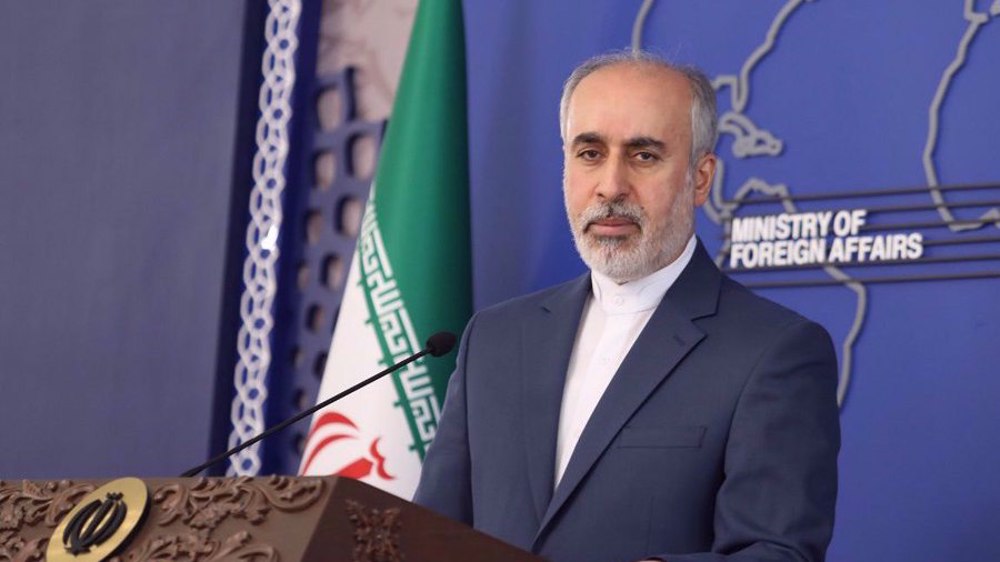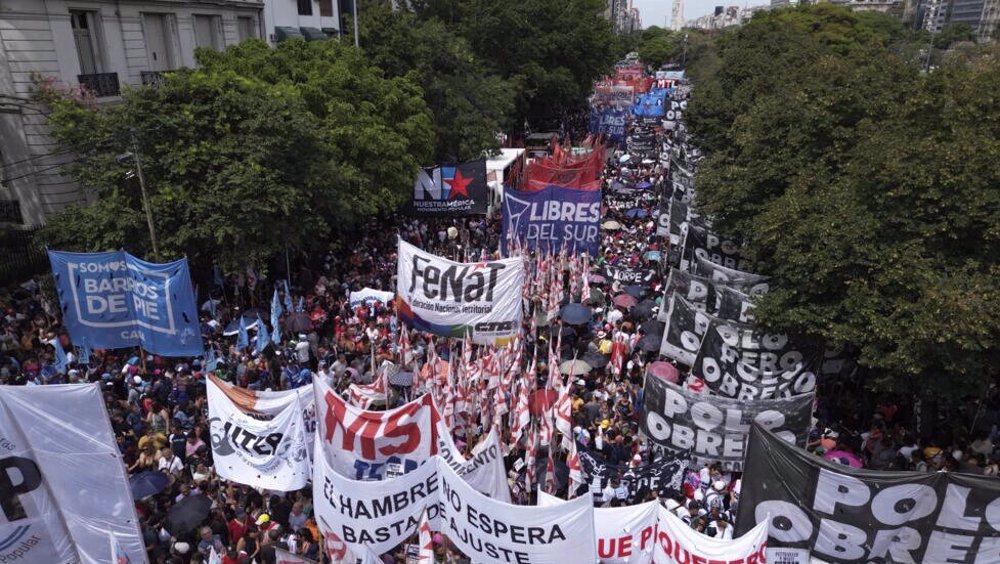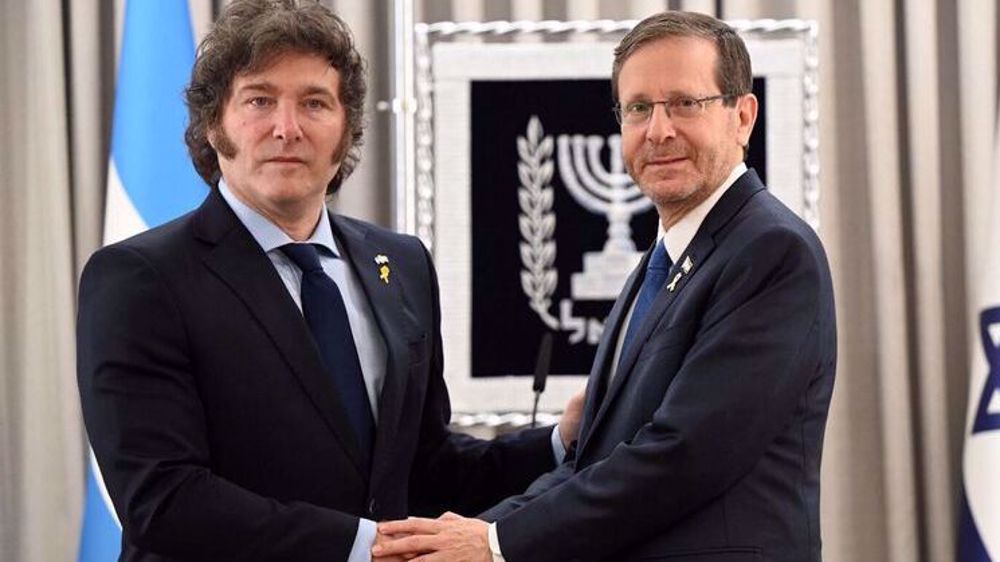Protocol spat mars Argentina's new era
A dispute has deepened between Argentina’s incoming and outgoing presidents, with a court ruling that Cristina Fernandez de Kirchner should leave office some 12 hours sooner than her term is over.
It came as president-elect Mauricio Macri prepared to be inaugurated on Thursday in the shadow of tens of thousands who gathered at Argentina’s most famous square to say goodbye to Kirchner.
Tensions intensified between the two after Fernandez accused Macri of disrespecting her in an argument over the location of the inauguration ceremony.
Macri requested that the oath-taking be done at the Congress before receiving the presidential sash from Fernandez at the Casa Rosada Presidential Palace in the capital, Buenos Aires. Kirchner suggested the entire ceremony be carried out at the Congress.
The outgoing president, whose presence was necessary in the ceremony to hand over the presidential sash, said she would not be taking part in the event, which is due later on Thursday.
Macri requested a federal court to rule that Fernandez’s presidency should end sooner and the ruling came in his favor, further angering the 62-year-old outgoing president.
Following the federal court ruling, an interim president will now be handing over the presidential sash to Macri.

Macri, 52, will assume office after being sworn in at noon on Thursday. Argentina’s Senate leader Federico Pinedo is expected to serve as interim president for about 12 hours, before handing over the sash to the incoming president.
On Wednesday, Kirchner delivered a farewell speech for tens of thousands of her supporters on Plaza de Mayo in downtown Buenos Aires, attended by Bolivian President Evo Morales.
She criticized the incoming administration for following “an agenda from the outside being imposed on the region," apparently referring to the US and others she sees as enemies of Argentina.
During her two terms in power, Fernandez frequently accused the US and other countries of meddling in her nation’s affairs.
Kirchner and her husband and predecessor Nestor Kirchner rewrote Argentina's social contract during their 12-year spell. They spent heavily on social programs for the poor and aligned with South America's anti-colonial leaders such as the late Venezuelan president Hugo Chavez.
Macri’s victory is seen by many as an end to those policies.
A social conservative and the son of a wealthy businessman, Macri has proposed easing of restrictions on imports and dollar transactions and liberalizing the country’s economy. He has also pledged “good relations with all countries,” including the United States.
VIDEO | Former FBI agent criticizes US Congress for 'outright corruption'
IRGC chief urges Muslim countries to cut aid routes to Israel
'New chapter in cooperation': Iran, Venezuela sing new MoUs
Jordan sentences former lawmaker for supporting Palestinian resistance
Basij volunteer forces hold massive drills in southwestern Iran
Israeli war criminals 'not welcome', US city says after ICC ruling
US vetoing of Gaza ceasefire resolution ‘disgraceful’: Iran’s UN envoy
VIDEO | IAEA adopts anti-Iran resolution tabled by E3













 This makes it easy to access the Press TV website
This makes it easy to access the Press TV website